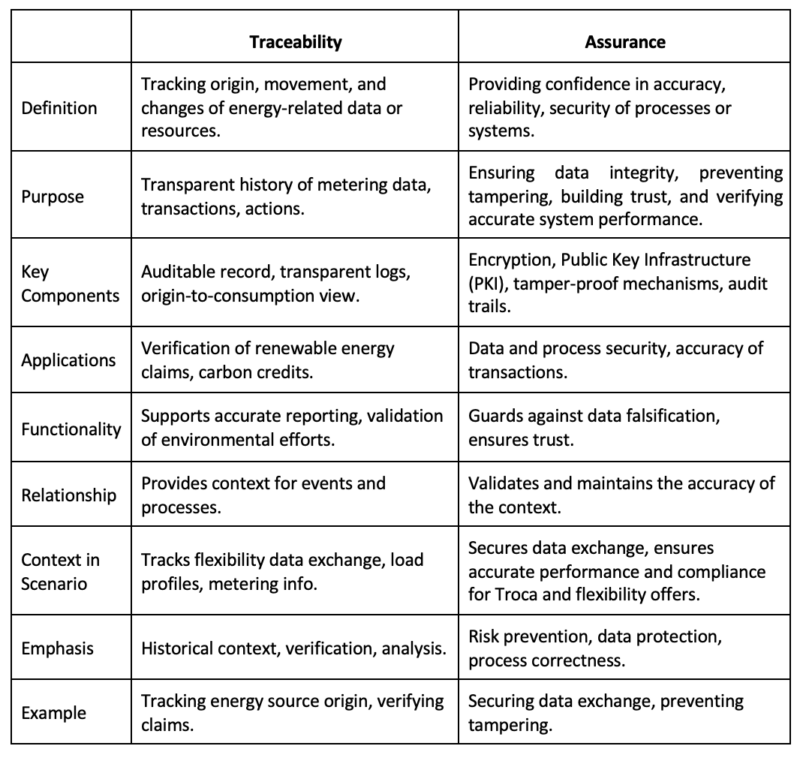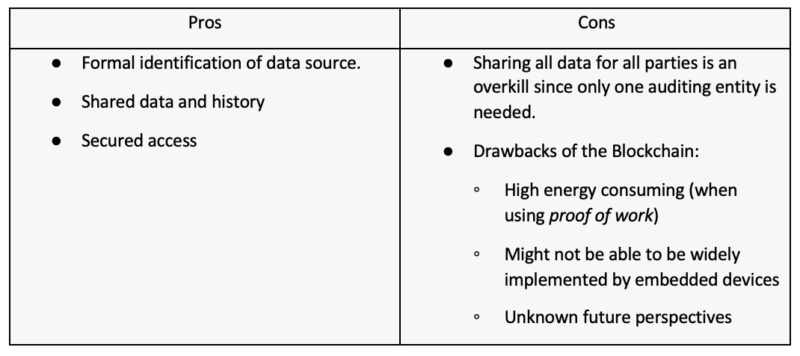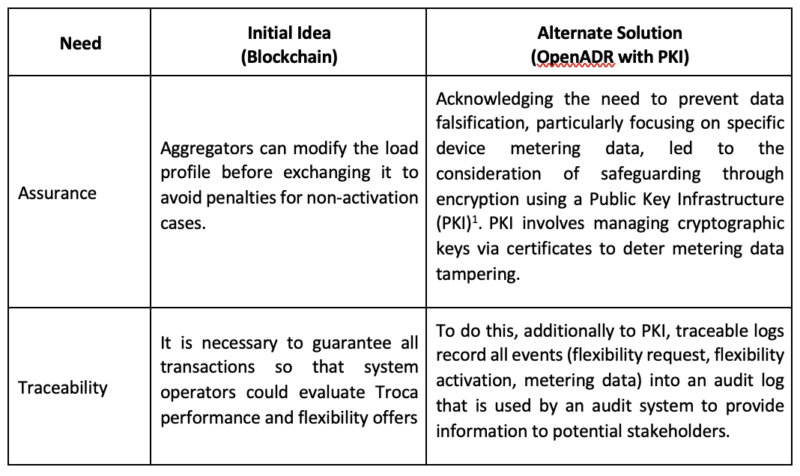Three years ago, Trialog studied the applicability of blockchain technology in smart grids through a Trilab demonstrator. This focussed on the use of blockchain to track the charging sessions of electric vehicles, and process the transactions through the use of smart contracts. Since then, re-using this technology was considered in the scope of the SENDER European project to integrate a new function of traceability and assurance in our Energy Management System Troca. However, it was considered to use Public Key Infrastructure (PKI) as technology. This article aims to detail the thought process leading to this decision, and reflect on our experience studying the Blockchain technology.
The needs of the SENDER project
SENDER project hopes to involve and transform small residential consumers and EV owners into active demand players through their participation in DR programs. It has then as objectives:
1) Local consumer engagement, in particular individual households. To make local consumers be part of the flexibility programs.
2) Identify consumer patterns and forecast consumption (energy demand) to optimize the response using renewable energies in the grid.
The SENDER flexibility profiling framework was designed and built upon three independent components, one of them is the EV Charging Management system focusing on EVs and EV charges1.
This system is responsible for the EV-based flexibility extraction and EV charging schedule calculation regarding external constraints (related to the charging infrastructure, the EV capabilities, the EV user preferences, or the grid capability).
Trialog’s Electric Vehicle Charging Energy Management System (Troca) is part of the SENDER project as contributor to the Electric Vehicle Charging Energy Management System that is expected to control the EV’s flexible load to adapt its charging profile to operational conditions of the grid. This, to answer the use case of making EVs take part in systems services to support grid flexibility operations1.
The need for assurance and traceability
The existing Troca is capable of commanding charging profiles using information from metering data and accounting for constraints posed by charging stations and grid capacity. Nevertheless, a crucial gap lies in its ability to verify the authenticity of metering data, demand, and flexibility offers. The absence of this verification functionality exposes the system to potential data corruption, leading to penalties arising from the inability to accurately fulfill contracted flexibility requirements. Consequently, the areas that require attention and enhancement are the domains of traceability and assurance. These functionalities are imperative to establish a secure and transparent environment where the legitimacy of data and transactions is ensured, mitigating the risk of penalties and fostering trust among stakeholders.
Therefore, the aspects for Troca to be addressed are:
TABLE 1. ASPECTS FOR TROCA TO ADDRESS

How to address it: A blockchain solution?
A first attempt was to use blockchain and smart contracts to include proper assurance and traceability of both flexibility offers and flexibility activations to the Smart Charging EMS. Initially, the idea was considered ideal for two reasons 1:
1) The Blockchain offers a forgery-proof register in which flexibility activations and/or metering data could be stored.
2) The Smart Contracts could ensure that, once agreed, a shared database allows other parties to access the history and identify the sources of each data.
After studies on the Blockchain technology, it was disregarded due to the concerns summarized in Table 2. It was also clarified that even if data cannot be altered once stored in the blockchain, there is no guarantee that the input data is valid.
TABLE 2. STUDY ON INTEGRATION OF BLOCKCHAIN TECHNOLOGY1

How to address it: Alternate implemented solution
The Blockchain solution was a candidate for traceability and assurance functionalities. However, a direct flexibility exchange between Trialog’s Electric Vehicle Charging Energy Management System (Troca) and the flexibility manager (Aggregator) was still needed.
To d eal with this direct exchange, OpenADR (Open Automated Demand Response) was considered, because it is an efficient and standardized demand response protocol for secure communication. Then, to increase its reliability and ensure data integrity, a PKI implementation is thought to be added.
Consequently, a change in the implementation of the solution was proposed, table 3 shows the unmet needs in the initial solution against the solution by using OpenADR with PKI:

Conclusion
The Troca solution’s approach to traceability and assurance was deliberated, ensuring data integrity and cultivating trust among stakeholders. While blockchain was initially considered, a deeper analysis revealed challenges such as energy consumption, scalability, and uncertainties surrounding implementation. Consequently, the focus shifted towards an alternate approach: harnessing the power of OpenADR with the reinforcement of a Public Key Infrastructure (PKI). This integrated solution not only facilitates secure and standardized demand response communication but also ensures data integrity through encryption and cryptographic keys managed by certificates.


